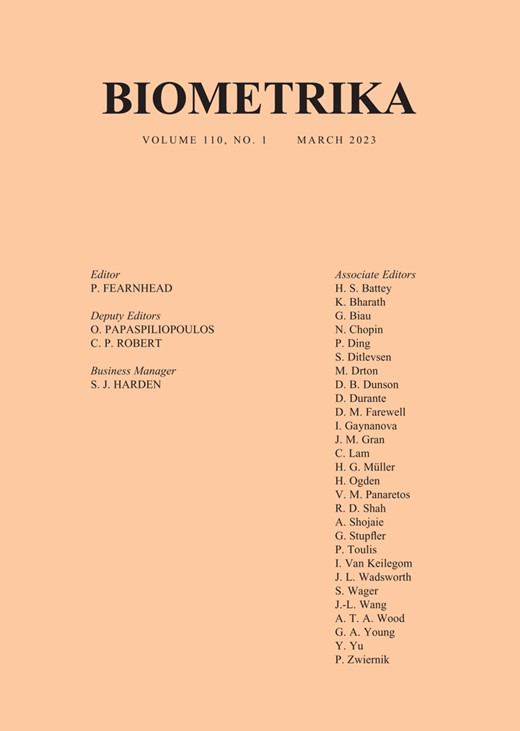-
Views
-
Cite
Cite
Guillaume W Basse, Yi Ding, Panos Toulis, Minimax designs for causal effects in temporal experiments with treatment habituation, Biometrika, Volume 110, Issue 1, March 2023, Pages 155–168, https://doi.org/10.1093/biomet/asac024
Close - Share Icon Share
Summary
In many modern settings, such as an online marketplace, randomized experiments need to be executed over multiple time periods. In such temporal experiments, it has been observed that the effects of an intervention on an experimental unit may be large when the unit is first exposed to it, but then it attenuates after repeated exposures. This is typically due to units’ habituation to the intervention, or some other form of learning, such as when users gradually start to ignore repeated mails sent by a promotional campaign. This paper proposes randomized designs for estimating causal effects in temporal experiments when habituation is present. We show that our designs are minimax optimal in a large class of practical designs. Our analysis is based on the randomization framework of causal inference, and imposes no parametric modelling assumptions on the outcomes.



